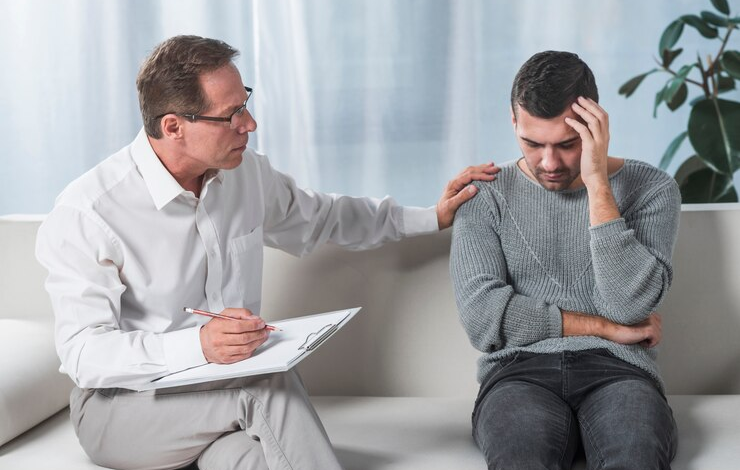Rehabilitation Centres in Cape Town: Expert Care at Verslavingskliniek Zuid-Afrika

Substance dependence is one of the most pressing problems that have an impact on people and their families in the Republic of South Africa. It is a war that needs love and empathy to wage and yet deserves comprehensive help from a professional counselor. Within this challenge, rehabilitation centers in Cape Town like the Verslavingskliniek Zuid Afrika (Addiction Clinic South Africa) have been a God sent to very many people.
Rehabilitation is not only making persons recover from substance dependence but it is making them regain new identities, new lives, new opportunities and relationships. For anyone finding themselves or a loved one researching for help, this comprehensive guide outlines the treatments, services and outcomes of Cape Town’s prominent rehab centres.
Exploring the Verslavingskliniek
Verslavingskliniek is located in the middle of beautiful Cape Town, the clinic provides a comfortable and tough environment necessary for patients to start their new useful life. The clinic was characterized by offering specialized professional medical services together with adopting a comprehensive one in which all the underlying causes contributing to substance dependency are treated.
An Approach towards Recovery
Recovery is not solely a cessation of the substance of choice, it’s the process to restore an individual to a whole state. At Verslavingskliniek zuid afrika we count with programs that focus on mental, emotional, and physical well-being. Holistic treatments include:
- Primary individual Narcotics Anonymous and Alcohol Anonymous to work out the root cause of drug abuse.
- Awareness and Mutual Support Group Counseling for the participants of the group.
- Among which; Wellness Activities including yoga, meditations and other fitness programs.
- The kind of program that will also assist people to undergo transformation is known as Life Skills Training in order to make a comeback to their routine in a confident manner.
Due to the natural environment and professional equipment, clients can fully concentrate on their path to improvement at the clinic.
Real Lives, Real Transformations
It’s well understood and even more revealing coming directly from the mouths of those that have been there and done that towards the healing process. Heartbreaking is the fact that so many patients testify that they got their second shot at existence in Verslavingskliniek programs.
Sophie’s Story:
Can I come in anxious, helpless and clearly with no future? Through the kindness of the Verslavingskliniek team I learned not just how to remain a non-drinker but also how to start existing. Today I can gladly admit that I have been alcohol-free for more than two years and I am doing great.”
Jack’s Success:
He then began to work with other clinics specifically treating his addiction, but with one clinic, I remember that they paid much attention to my mental health issues that came alongside the addiction. I didn’t just leave with my head held high, but more importantly – I came out of that class sober, and far more equipped to handle everything life had to offer.
These are some of the powerful, real life success stories that are proof of the clinic’s goal of changing the lives of those that seek services from it.
The Role of Families in Recovery
Substanceuseis not solely personal. It has a ripple effect on families and friends also. That is why, at Verslavingskliniek, relatives of the patient are encouraged to participate in their loved one’s rehabilitation.
Families in the Journey
- Education Programs: Inform families on issues to do with addiction and what their affected family member is experiencing.
- Family Therapy Sessions: Reestablish trust and form constructive communication with the Greek partners.
- Support Groups: Build a community of understanding people who will help you in your decision making and support you.
The importance of having some form of support network in place, for this reason, makes for a much more stable and successful recovery.
Collaboration with Medical Professionals
Recovery thus is a very unique process because every person deserves unique treatment. To ensure that patients get the best care possible we collaborate with doctors, general practitioners, psychiatrists, psychotherapists and addictionologists.
Why This Partnership Matters
- Besides, when it comes to diagnosis or prescribing appropriate medication, mental health specialists can consult with doctors.
- Substance abuse is often accompanied by other disorders which therapists sort out like anxiety or depression.
- Continuous integration also enables smooth, comprehensive treatment ranging from detoxification to after treatment.
These cooperative approaches stress medical and ongoing client care trying to provide comprehensive patient care.
Unique Features and Services
Other worthwhile questions that the viewers might be interested to initiate consist of;
- Specialized Treatments: This includes dual-diagnosis, trauma, medication and other individual patient care treatment plans performed exclusively for each patient.
- Recreational Activities: Creative art therapy for depression: a new mental health adventure , nature walks and adventure outings to rediscover joy while focusing on healthy living.
- Aftercare Services: Recovery continues long after a person leaves the clinic or decides to quit substance use. But, follow-ups or checkups, alumni meetings and lastly, relapse prevention seminars will keep people on the straight and narrow.
These exclude the basic baseline, but offer added value to the entire recovery process.
Building a Recovery-Focused Community
Verslavingskliniek is not an isolated treatment centre; it successfully influences several areas. Also, they directly involve themselves with the residents in their efforts in creating awareness on alcoholism and support the victims to get out of the addiction.
Community Initiatives
- Educational Workshops: Understanding addiction and its consequences among teaching schools and workplaces.
- Free Support Groups: Public to those people who want assistance or recommendations.
- Outreach Programs: How to ensure that low-income populations receive assistance they require?
Such practice shows the high level of commitment to active participation and contribution to the society, which is the main aim of the clinic: making people healthier and more informed.
Seek Healing, Seek Hope
Recovery from addiction is a daily maturing process, but the decision to accept help and seek it is a very big step. Like Verslavingskliniek Zuid Afrika, other rehabilitation centers in Cape Town for those willing to make that change- there is light at the end of the tunnel.
Rehabilitation is not just laying down substance use; It is about rebuilding life, relationships with others, and even having a job. So if you are the addict or if a loved one of yours is then do not wait. Make the call for the help you require to kick start your recovery process today.
For details on programs and some of the support provided at Verslavingskliniek, you can either use the contact information provided or visit the Clinic Website. As you mentioned, please don’t forget that whenever someone needs help, it means they are brave enough to do it and are not a weak person. Altogether it is possible to adopt a common understanding of what it means to recover in the context of South African society.
Understanding Addiction and Its Impact
It may not only have adverse effects on the addict but also the family and the rest of society. This is usually attributed to some hereditary factors, psychological complaints and environmental factors. When you define the predisposing factors and effects of substance dependence, there is always a way for those affected and their families to lessen or even eliminate the effects of such a disease.
The Role of Professional Support
It becomes very important to seek professional help when going through the recovery process. Individual expert assistance can be given depending on specific conditions which require development of individual therapy, consultation and prescription of drugs if necessary. Such professional care makes it possible for people to get all the care they need for them to be able to get out of the illness permanently.
Building a Support Network
Recovery, therefore, is not something that is done alone – it feeds on support and people. Support groups, friends and families are a group of people that help by providing morale support and keeping you on your toes. They agree that healthy relationships form a base and allow people to remain dedicated to change and manage life’s adversities in the process of recovery.
The Importance of Aftercare
Recovery is not limited to discharging a patient from an addiction treatment center, aftercare is equally important. It affords post-treatment counseling, self-help groups, and educational meetings and programs for sustaining abstinence. Aftercare programs also therefore have aims of no relapse and helping people get their confidence as they go back to the society.
Conclusion
Recovery is ongoing; there is no question that there are bumps in life from time to time; and there are seasons of renewal as well. The chance to build a stable network of social relations, proper further support, and personal future planning, can ensure a happy all substance-free life. Similar to any journey towards improved recovery it is crucial to remember, it does not matter how small or insignificant the step may be, it is a step in the right direction and with the right method, and the support of facilities such as those at Rehabilitation Centres Cape Town, long-term recovery is not only feasible, but realistic.
FAQs
Q1: What should I do if I relapse during recovery?
A1: It’s important for people not to give up and label it as a failure, when in fact relapsing is quite common. If you fall back into an old pattern, seek help right away from a counselor or friend, or your support group. Identify what caused the trip to relapse and consult relevant persons to redesign your treatment process. Just remember, nobody is perfect and even if you have slipped from your commitment, it’s never too late to begin that process all over again.
Q2: How important is aftercare in the recovery process?
A2: Succession is an important aspect in recovery particularly after care has been provided. It offers long-term care and tools and guidance, figures, and otherwise, people will not go back to their old way of life. Something as simple as support groups, therapy, or sober living environments are all more of the long term strategies.
Q3: Can I recover without professional help?
A3: Sometimes, people try to do recovery on their own, but if one has help from a professional, he or she has a much better chance of getting and staying sober. It is comforting to know that treatment programs give help, organization, and direction the person needs in order for a new program to start and have a solid base.
Q4: How long does recovery take?
A4: This suggests that recovery is not a homogeneous process, across the different groups of individuals. The time of recovery differs from person to person, extent of the addiction, and the amount of encouragement provided to the sufferer. As you will learn, treatment programs range from weeks to months whereas recovery is a life process with an unending process of improvement.
Q5: What can family members do to support a loved one in recovery?
A5: Commitment of the family can work mainly by encouraging the patient emotionally, physically attending the therapy sessions and learning more about substance dependence and recovery. In addition, acknowledging and supporting your loved one creates a valuable environment that enables your loved one to work towards and embrace recovery.





